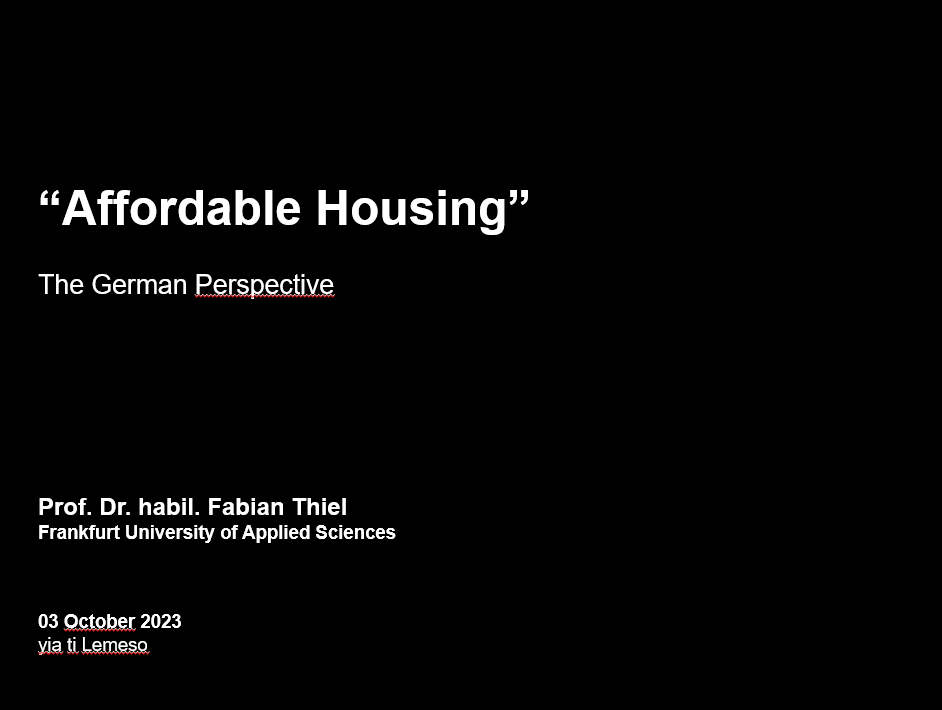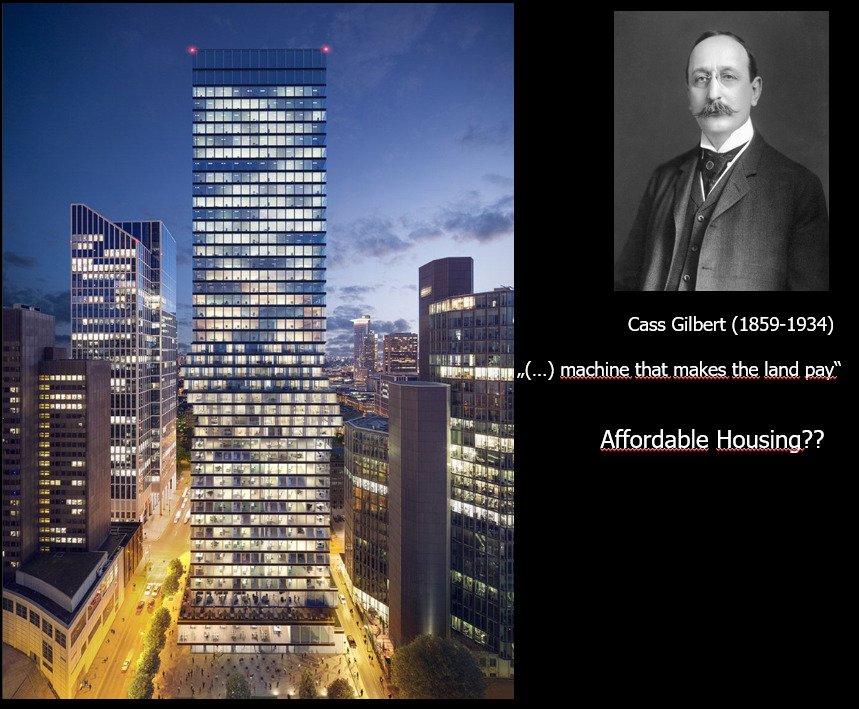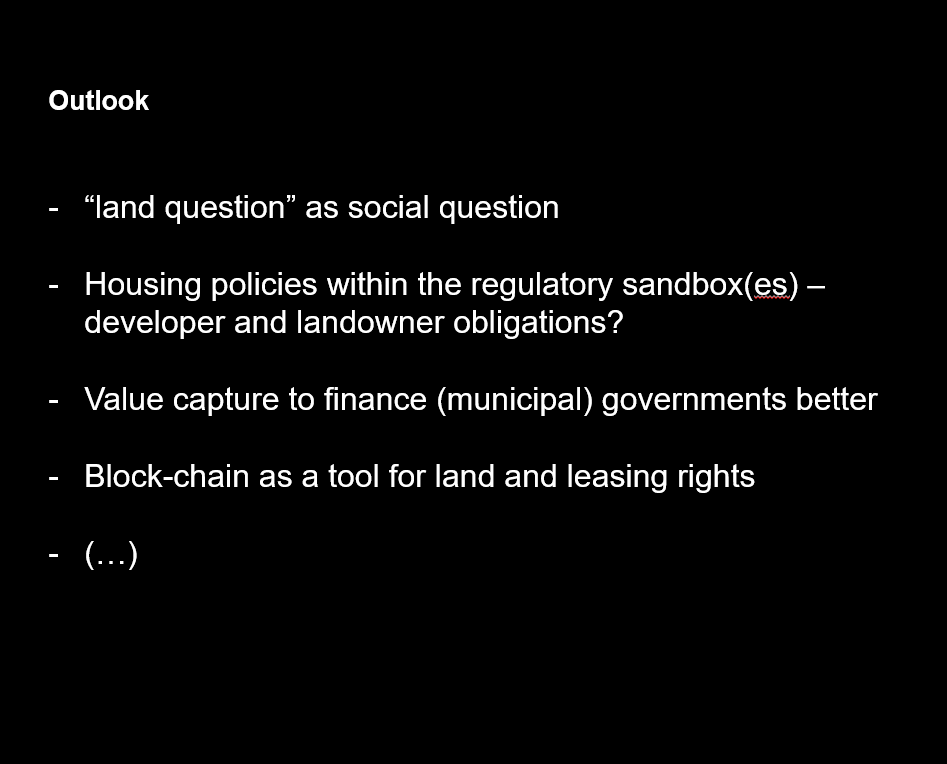What does land policy contribute to affordable housing?
Examples and debates from Germany
Introduction
In Germany, the issue of “housing shortage” is currently the subject of intense debate. There are about 3 million empty apartments, but in the wrong location. At the same time, 500,000 apartments are missing in the attractive markets and regions of the “big seven cities”. A constitutional amendment a few years ago transferred social housing tasks to the federal states (“Länder”), but they are unable to fulfill them – due to a lack of funding.
A State commission on “mobilization of land” stated in 2019:
- “The housing issue is a central social issue of our time. Prosperity for all presupposes an adequate supply of housing for all.
- In everyday life, many people, especially those with low and medium incomes, are currently facing the problem of finding housing for themselves and their families. People in many regions of Germany are worried about the situation on the housing market, whether because of rising rents or the need to build their own homes.
- We therefore need more housing in many cities, districts and communities. Housing must be affordable for low-income earners and the broad middle class.”
It is the political aim to resolutely tackle the challenges of providing adequate housing for all sections of the population in trusting, constructive and determined cooperation between the federal, state and local governments across departmental boundaries and with the support of all relevant players in the housing markets, from the planning professions to the executing construction industry, the real estate industry, the German Tenants’ Association and the trade unions.
However, who is missing here? The affected landowners!
Hence, this presentation has the aim to illuminate how the federal government respond to the web of actors between households, Markets, employers, public authorities, selling and renting owners.
Consequently, property policy is still as current as ever. It follows that the state will not be able to get around the issue of “deliberate” property policy. This applies in particular with regard to the aim of slowing down building land production because, as we know, land is primarily subject to private powers of control. The high land prices in urban conurbations cause residential areas to spread outward to the suburbs or to rural areas. Meanwhile, well-developed housing areas in the midst of agglomerations with little surrounding green space or on heavily frequented thoroughfares are experiencing large-scale desertion. In the future too, the highest absolute growth rates are expected to be seen in areas surrounding agglomerations as well as in the densified and rural districts of urbanized areas.
There is a lack of single-family homes ready for occupancy and attractively designed rental apartments in apartment blocks in areas close to the city centre that meet reasonable levels of urban development density. Currently, city living appears to be (back) in trend. But building land in cities is scarce and thus expensive. Homebuyers tend to choose to buy apartments covered by the WEG [German Condominium Ownership and Residence Rights Act]. If we consider the function of the principle of sustainability as an expression of protecting resources and of property and employment policy, it becomes clear that it is also necessary to achieve the protection of open space to safeguard future uses. Also, the Hereditary Leasing Act sees a “renaissance” recently with projects in social housing.
Case-studies
Two interesting main contrary developments can be shown:
Case 1: At present, socialization options are being demanded in the discourse of the publicization of large housing stocks above 3,000 units in the state of Berlin as demanded by a local activist group. The initiative reached the Berlin House of Representatives after the Berlin Senate declared the petition admissible and successfully won the necessary majority of voters of the public referendum in September 2021. Following this, a law on socialization would have to be drafted by the Senate of the State of Berlin.
According to Art. 15 in conjunction with Art. 74 (1) No. 15 of the German Basic Law, the transfer of land, means of production and natural resources (according to a liberal interpretation: credit institutions, all raw materials and natural forces as well as the entire energy industry) for the purpose of socialization – criteria of finality – by a law, which regulates the nature and extent of compensation, into common property or other forms of public service is permissible. It therefore requires the federal and provincial legislator who must observe the qualified legislative reservation. An appropriate and justified compensation system must now be found.
Case 2:
Case No. 2 describes a current experiment called “Free Private City Doebeln” in Saxony. The idea is to transform a existing city into a completely privatized city; the defining feature is that it should be run by a cooperative or autonomous body called “Operator” or “Government Service Provider”. The Operator offers citizens of the Free Private City protection of life, liberty and property. These services encompass internal and external security, a predefined legal and regulatory framework and an independent dispute resolution system. Interested individuals and companies enter into a Citizens’ Contract, paying a fixed yearly fee for these services. Since all land is currently controlled by governments, the establishment of a Free Private City requires that an Operator enters into a contractual agreement with an existing state, referred to as the Host Nation. In this agreement, the Host Nation grants the Operator the right to establish the Free Private City on a defined territory in accordance with certain predefined conditions, normally encompassing extended regulatory autonomy in various fields. This process is still ongoing.











